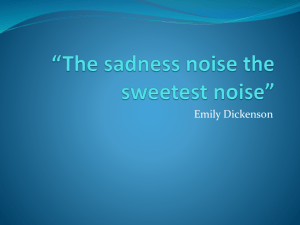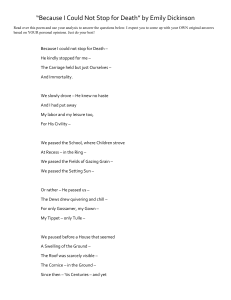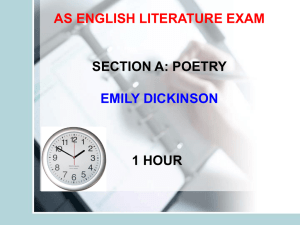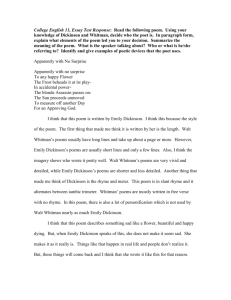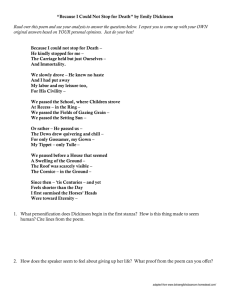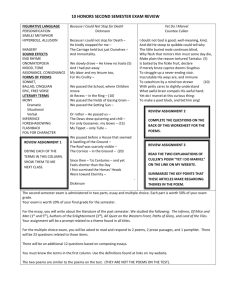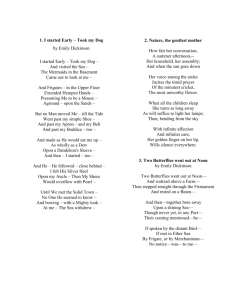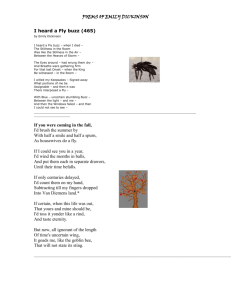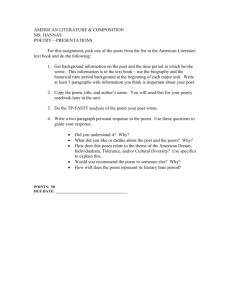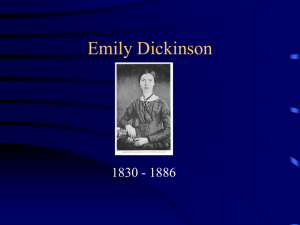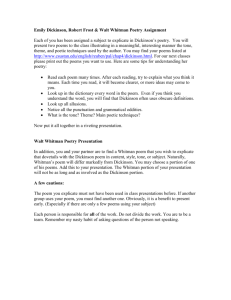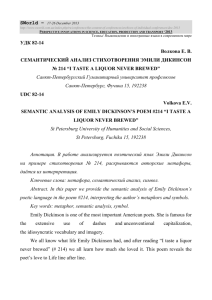Sweet * safe * Houses *
advertisement
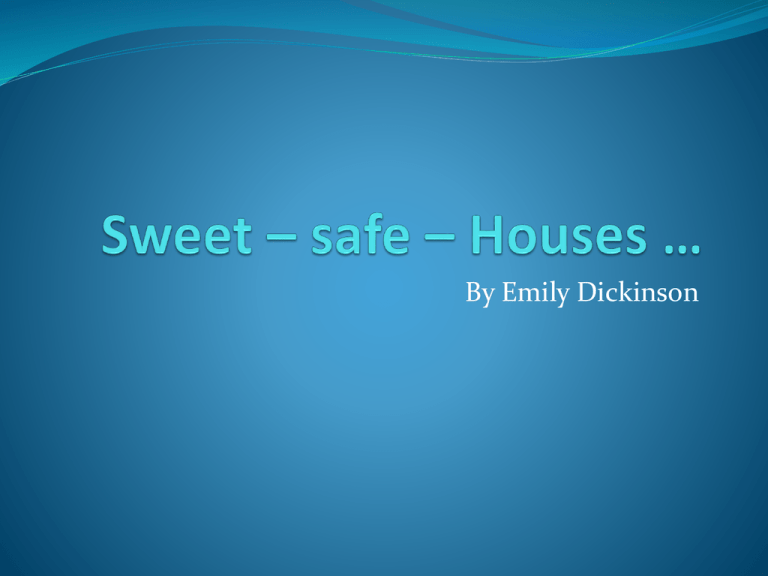
By Emily Dickinson Emily Dickinson Born 1830, Massachusetts Came from a respectable academic family She was well educated at both Amherst College and Mount Holyoke Female Seminary After suffering from depression, she became reclusive She began writing poetry in the 1850’s The subjects of most of her poems are concepts such as love, death and nature By 1970, she was dressing only in white and declining to see most visitors She wrote nearly 1800 poems, but only 10 of them were published in her life time Died 1886, Massachusetts Structure Sweet – safe –Houses uses a ballad stanza structure with quatrains except for the first stanza Emily Dickinson often used slant rhyming, for example ‘come’ and ‘tomb’, however she does not follow the same rhyming pattern in every stanza She is also famous for her use of dashes throughout her poems, which can emphasize ideas and forces the words into a rhythm. Dickinson was heavily influenced by English hymns so the dashes could represent the rise and fall of the words if the poem was set to music Themes One of the main themes in this poem is the juxtaposition between the idea of the rich, prosperous house in which the speaker is living, and the cold reality, without the comfort normally associated with a home. The oppressive nature of the household is represented by words linked to death, for example ‘muffled coaches’ and ‘tomb’ Throughout the poem the word home is never used, because the speaker views the house as only a building, and not a home Language Sibilance sounds bitter, like the speaker is spitting out the words Sealed off from the world Ambiguous dashes, primarily to emphasize and seperate ideas Sweet—safe—Houses— Glad—gay—Houses— Sealed so stately tight— Lids of Steel—on Lids of Marble— Locking Bare feet out— Reference to No relaxing in this household coffin. Being in the house is claustrophobic like a coffin Language Expensive fabrics, but no real comfort Brooks of Plush—in Banks of Satin Not so softly fall As the laughter—and the whisper From their People Pearl— Links people to nature, pearls in clams are expensive but isolated Brooks and banks sound like nature, juxtaposing the man made materials Contrast between the sounds of a happy home and this house Language They don’t want anything, even sickness or death to come and ruin the image of prosperity that the house creates No Bald Death—affront their Parlors— No Bold Sickness come To deface their Stately Treasures— Anguish—and the Tomb— They only have stately treasures, nothing with emotional or sentimental value Language Hum by—in Muffled Coaches— Lest they—wonder Why— Any—for the Press of Smiling— Interrupt—to die— The hush in the house makes it seem like someone has died, linking the house to a funeral Ambiguous ending to the poem The depression in the inhabitants of the house is hushed up to keep up appearances No one wants true feelings or any unhappiness to interrupt the pretence of happiness Thanks for Watching
